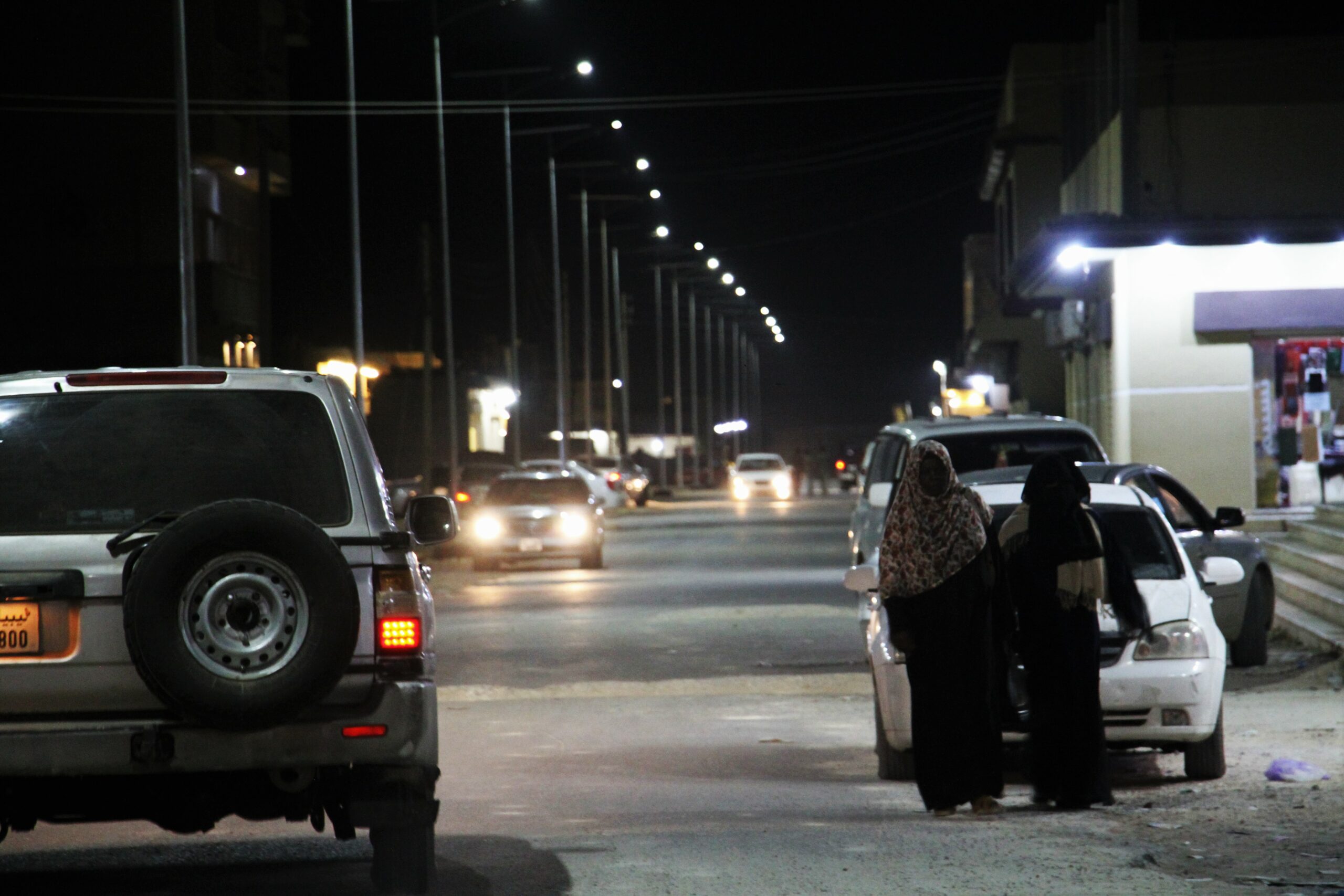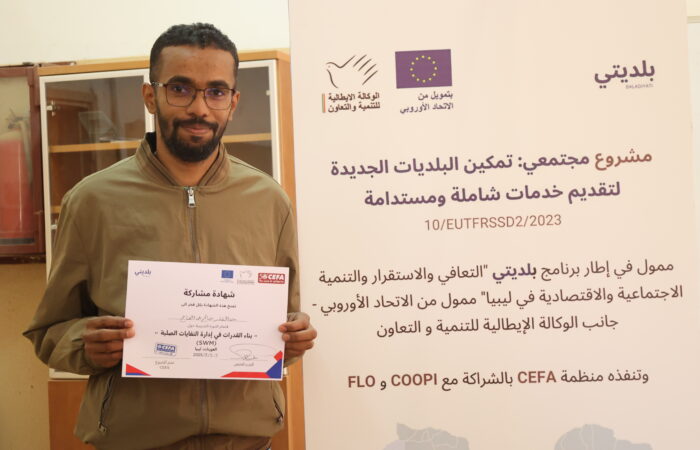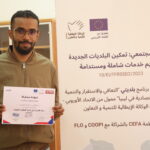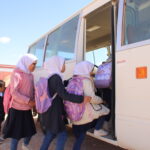“How I have wished for this day. The streetlights are no longer cut off, despite the regular and lengthy power outages in the country” stated Mr. Abdelbaset Abdel-Sayed Al-Qatani, a laboratory technician working in Al-Andalus neighborhood of Emsaed, expressing his great joy for the newly installed solar streetlight panels in the city.
Located 15 kilometers from the boarder of Egypt, in the far east of Libya, Emsaed Municipality is home to approximately 15 thousand people. The city has been greatly affected by years of conflict, leading to extensive damage to its infrastructure and a shortage in essential services such as healthcare, education, and supply of electricity. Moreover, Emsaed has faced many obstacles in receiving support due to its remote location in eastern Libya.
To address these issues, and as part of UNDP’s local peacebuilding and resilience efforts in the East of Libya, UNDP is supporting the municipality to restore essential services, enhance peacebuilding, and contribute to economic recovery. To further support this growth, 1 km of solar streetlight panels were installed in the Al-Andalus neighbourhood of the city to provide safety and opportunities for existing and new businesses.
A ray of hope for the city
For the mayor of Emsaed Municipality, Mr. Saleh Amawad, the collaboration with UNDP is bringing about much-needed change, providing the municipality with essential support to identify needs to build resilience and improve livelihoods: “We are about 800 kilometers away from the city of Benghazi and the road separating us from the city of Tobruk is not good for travel, as it is full of potholes.When the support of UNDP began to reach us,, things started to improve in our municipality,” he said.
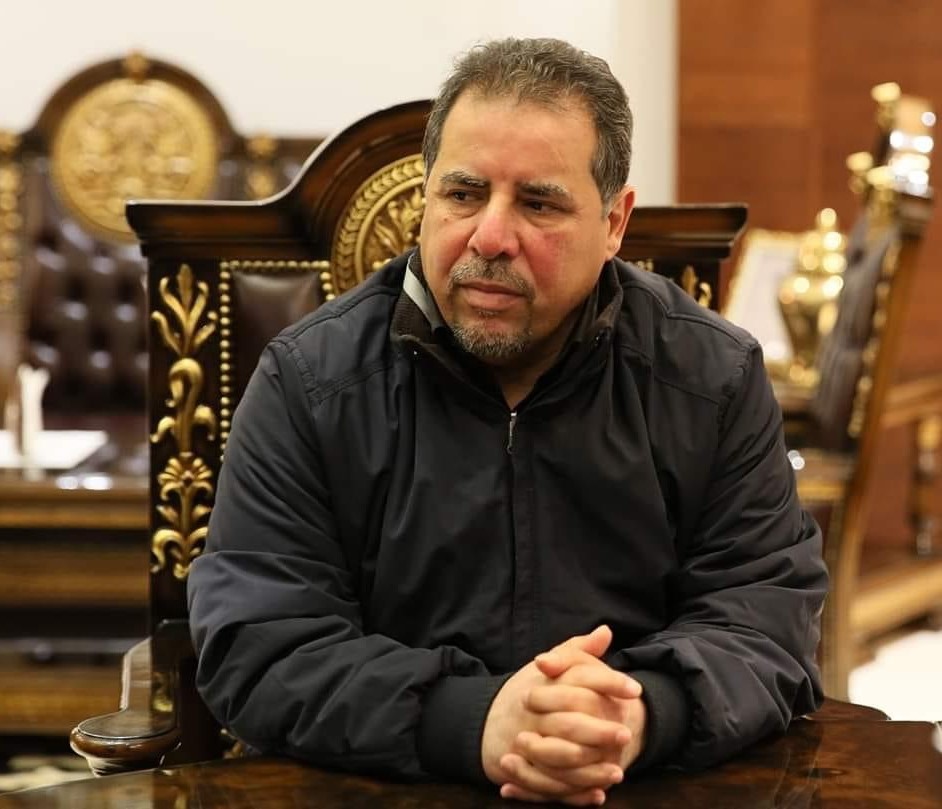
The journey began following consultations with local communities, during which priorities were identified and a plan to address them was developed to ensure that local communities are empowered to lead sustainable and effective lives at the local level.
Mayor Saleh Amawad explained, “We have been working with UNDP for several years now and developed a structure to determine priorities in a participatory way. It all started with building a new school, which was followed by sewage trucks designated to suctioning black water, from which we were suffering a lot. We have also received garbage trucks that have enabled a cleaner and healthier environment, and finally now the installation of solar streetlight panels which is a great achievement in response to the regular power outages making the city unsafe and causing many accidents on the road.”
The instalment of the solar streetlight panels began in February 2022 and was completed in August 2022, creating 20 temporary local jobs during the construction period. The work included excavation, concrete foundation, and installation of lighting poles using solar energy. The work was handed over to the General Electric Company of Libya in Emsaed to operate and maintain the system.
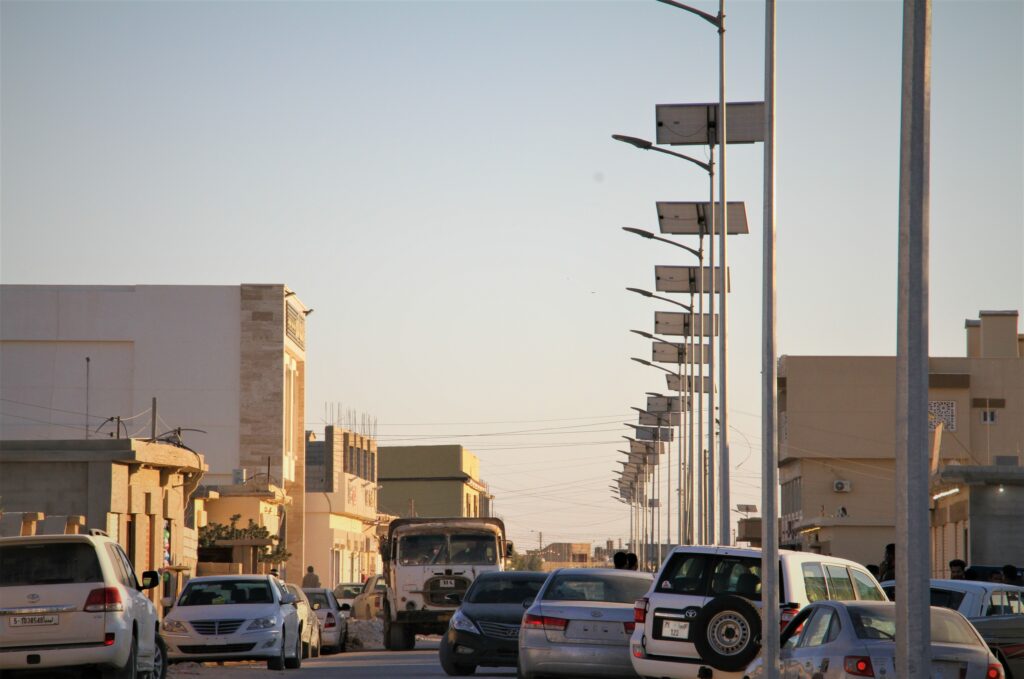
Flourishing businesses in Emsaed
With the peace and stabilization efforts in place in the recent years, businesses in Al-Andalus neighbourhood of Emsaed have been able to reopen and thrive. However, those operating without streetlights or regular power outages found themselves forced to close before sunset, which challenged the growth of their businesses. Thanks to the newly installed solar streetlight panels, this is no longer an obstacle for the business owners:
“The street has become completely illuminated after being dark in the past, so our situation has changed, and we can now stay open until late at night. The sales have increased, and merchants can feel proud of their successes”, said Mr. Abdul Raouf Muhammad Al Habouni, owner of a clothing shop for women. “Thanks to UNDP, businesses are now flourishing in the municipality and the residents of this neighborhood are lucky to have lasting lights even when the electricity is cut off,” he added.
Abdul Basit Abdul Sayed, a university graduate living in Al-Andalus neighborhood, is sharing the excitement of the new streetlights of the city, which became a stepping stone for his newly established business: “After I completed my university studies, I planned to start my own laboratory. When the solar streetlight project was completed in the neighborhood where my family and I are living, I finally decided to bring the idea to life and build the laboratory next to our house. Thanks to new streetlights we can work until late at night in the laboratory and the patients can safely come to us,” he expressed.
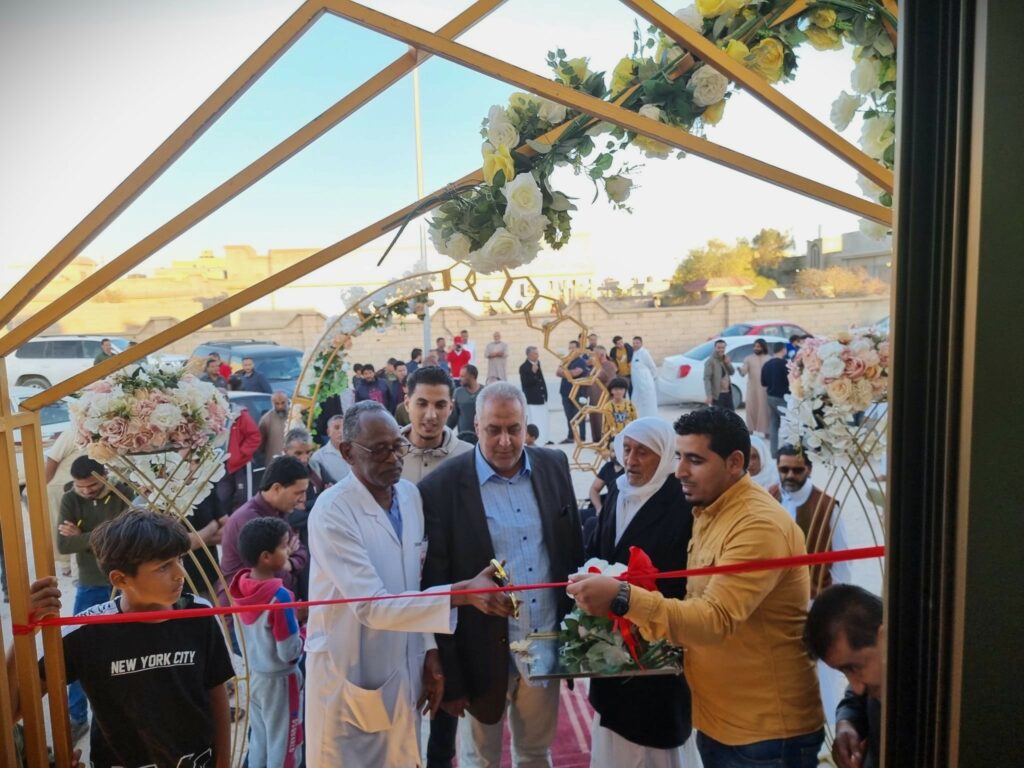
Opening of Mr. Abdul Basit Abdul Sayed’s new laboratory on the main road of the Al-Andalus neighborhood of Emsaed Municipality, following the installment of solar streetlights. ©UNDP Libya/ Abduladeem Ajaj
The mayor of Emsaed Municipality, Mr. Saleh Amawad, is also optimistic about the increased business activity and its contribution to tackle youth unemployment in the city: “The result is clearly visible. The street is now a safe space, and the lighting has helped increase new businesses thus creating new jobs,” he concluded.
As a result of the ongoing support of the UNDP, the municipality of Emsaed has seen a major transformation in just a few years. With the new streetlights in place, all citizens of the Al-Andalus neighbourhood, of approximately 5,500 people, as well as its markets, shops and hotels, can look into a safer and more prosperous future.
The solar streetlight panels in Emased were installed as part of the EU funded “Baladiyati” programme implemented by UNDP, the Italian Development Agency (AICS) and UNICEF. The €50 million “Recovery, Stability and Socio-economic Development Programme” currently works with 24 municipalities across Libya with the aim of improving people’s access to quality public services such as education, health, water and sanitation. The programme is funded by the European Union through the Emergency Trust Fund for Africa, to improve living conditions and build resilience among vulnerable populations, including migrants, refugees, internally displaced people (IDPs), returnees and host communities.

